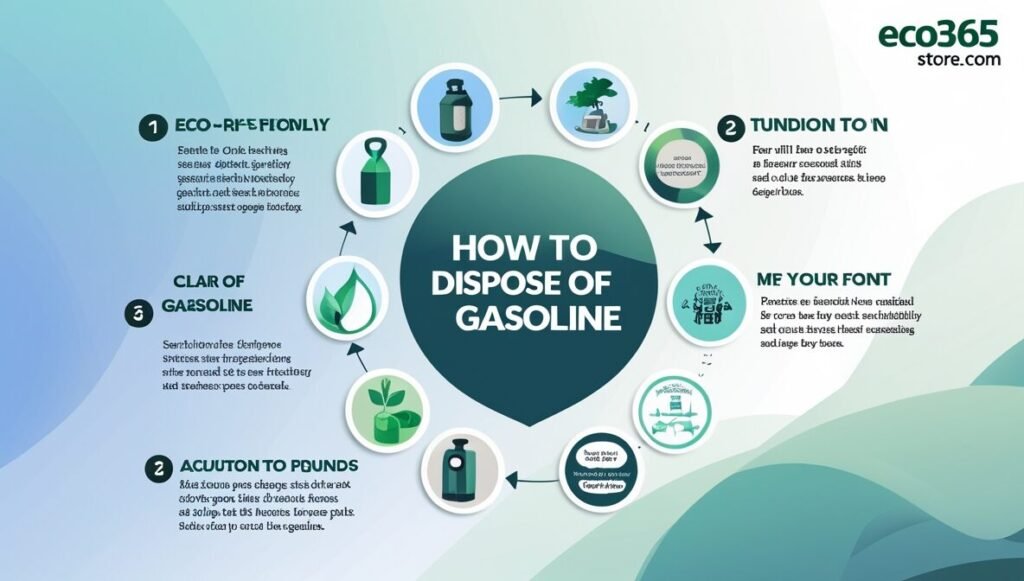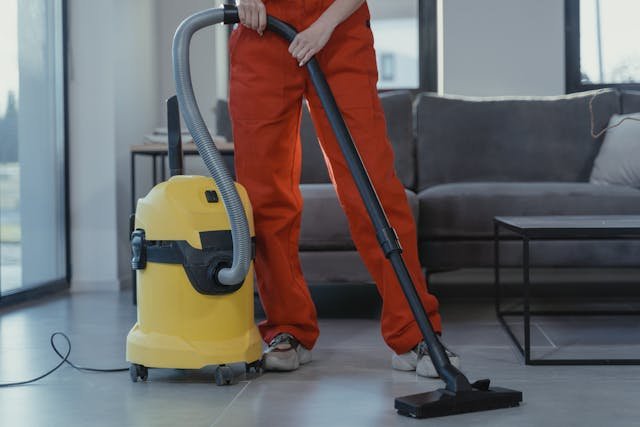Did you know that improperly disposing of gasoline can lead to serious environmental and health risks? Stale gasoline and old gas can contaminate soil and water, release harmful fumes, and even pose a fire hazard if not handled correctly.
This article provides a step-by-step guide on how to dispose old gasoline safely and responsibly. Whether you’re dealing with rust in a gas can or trying to figure out the best way to dispose of hazardous waste, proper disposal is crucial to protect both the environment and human health. Let’s explore the safest methods to get rid of old gasoline while ensuring peace of mind and safety for all.

Why Proper Old Gas Disposal is Crucial?
Handling old gasoline disposal responsibly is essential to avoid significant environmental and health risks. Improper handling can lead to contamination, health hazards, and even dangerous situations. Here’s why you should take the time to dispose of old gas correctly:
1. Environmental Hazards
- Soil and Groundwater Contamination: Gasoline spills can seep into the ground, contaminating soil and nearby water sources. This poses a long-term threat to ecosystems and drinking water supplies.
- Air Pollution: Gasoline is highly flammable and evaporates quickly, releasing harmful vapors into the air. This contributes to air pollution and poses a risk during old gasoline disposal.
- Fire and Explosion Risks: Improper storage or disposal can lead to dangerous situations, as gasoline remains highly volatile even as it begins to degrade. Keeping 5-gallon containers of unused gasoline for too long increases these risks.
2. Health Risks
- Exposure Dangers: Handling gasoline improperly can result in respiratory problems, skin irritation, and even long-term neurological damage. Vapors from old gas are especially harmful when inhaled.
- Direct Contact: Spills during disposal can cause skin burns or other irritations, making safe handling crucial.
Recycling and reusing old gas when possible, such as for your lawn mower or other equipment, or taking it to a facility to recycle old gas, are safer options than allowing it to leak or evaporate. Responsible management of improper gasoline disposal protects both the environment and public health.
Improper Gasoline Disposal Methods (and Why They Are Wrong)
When dealing with bad gas, it’s essential to avoid improper disposal methods that harm the environment and pose significant risks. Here are common mistakes people make when trying to dispose of the gasoline and why they are harmful:
1. Pouring Gasoline Down the Drain
- Why It’s Wrong: Pouring gasoline down the drain is illegal and extremely dangerous. Gasoline is classified as a hazardous waste, and even a small amount can contaminate local water supplies, harming aquatic life and polluting drinking water.
- Better Solution: Use a certified hazardous waste disposal facility to properly handle and process the fuel.
2. Pouring Gasoline on the Ground
- Why It’s Wrong: Pouring gasoline on the ground is not only illegal but also leads to severe soil and groundwater contamination. Gasoline can penetrate deep into the soil, damaging plant life and leaching harmful chemicals into aquifers.
- Better Solution: When wondering where can you dump gas, always opt for authorized recycling or disposal centers that ensure safe handling.
3. Throwing Gasoline in the Trash
- Why It’s Wrong: Disposing of gasoline in the trash is dangerous and poses a significant fire hazard. Gasoline is highly flammable, and leaks can lead to explosions during transportation or at waste facilities.
- Better Solution: To dispose of bad gas, store it in a sealed container and take it to a local hazardous waste disposal site for proper processing.
Avoid these harmful methods when deciding how to dispose of the gasoline, and choose environmentally friendly and legally compliant solutions to protect your community and the planet.
How To Dispose Of Old Gasoline?
Disposing of old gasoline requires proper handling to prevent environmental harm and ensure safety. Here are the most reliable ways to dispose of hazardous materials like gasoline:
1. Household Hazardous Waste (HHW) Facilities
- What They Are: HHW facilities specialize in safely collecting and disposing of hazardous materials, including gasoline. These centers are equipped to handle items like waste oil, paint, and fuel.
- How to Find One: Use local directories or contact your local waste management office to locate an HHW facility nearby.
- Why Choose HHW: These facilities ensure proper hazardous waste collection methods, preventing leaks, contamination, and other risks.
2. Local Government Programs
- Community Initiatives: Many communities offer programs to help residents who need to dispose of hazardous waste. These may include drop-off events, seasonal collections, or even curbside hazardous waste pickups.
- How to Learn More: Check with your local government’s waste management department for information on schedules and accepted items.
3. Auto Repair Shops and Gas Stations
- Local Businesses: Some auto repair shops and gas stations accept small quantities of old gasoline for disposal or recycling. They often combine it with their waste oil disposal systems.
- Inquire First: Not all businesses offer this service, so always contact your local repair shops or gas stations to confirm their policies.
Pro Tip
If you plan to store old gasoline for a short time before disposal, add a fuel stabilizer to prevent the gas from degrading further. When you visit a recycling center, ensure you transport the fuel in an approved, sealed container to avoid leaks or spills.
Using these methods ensures that you safely recycle old gas while protecting the environment and your community.
Safety Precautions for Handling and Dispose of Gasoline
Handling gasoline, especially during old fuel disposal, requires strict safety measures to prevent accidents and protect your health. Follow these precautions to ensure safe bad gasoline disposal:
1. Store Gasoline Properly
- Use Approved Containers: Store gasoline in containers specifically designed for fuel, such as a 5-gallon approved gas can. Avoid using makeshift containers, which can lead to leaks or spills.
- Keep Away from Heat: Store the containers in a cool, dry location, away from direct sunlight, heat sources, or sparks to minimize fire hazards.
2. Transport Gasoline Safely
- Secure the Container: Transport gasoline in a secure and upright position to prevent spills or leaks.
- Ventilation is Key: Use a well-ventilated vehicle to transport gasoline. Never place fuel containers in the passenger compartment. For added safety, consider using a clear glass container for small amounts to monitor leaks.
3. Wear Appropriate Safety Gear
- Protective Equipment: Always wear gloves and eye protection when handling gasoline to avoid skin irritation and accidental splashes.
- Avoid Inhalation: Gasoline fumes can be harmful. Ensure you work in a well-ventilated area during bad gasoline disposal.
By following these precautions, you can handle and manage disposal of gasoline safely, reducing risks while ensuring responsible old fuel disposal.
Conclusion: Safely Managing Old Gasoline
Properly managing how to dispose old gasoline is essential for protecting the environment and ensuring safety. Improper disposal can lead to severe environmental damage, health risks, and fire hazards, making it critical to handle gasoline responsibly.
Safe disposal methods include taking gasoline to a Household Hazardous Waste (HHW) facility, participating in local government collection programs, or inquiring with auto repair shops or gas stations. Always follow safety precautions, such as using approved containers and wearing protective gear, to minimize risks during handling and transport.
If you’re unsure about the process, contact local authorities or nearby recycling centers for specific instructions on how to dispose old gasoline in your area. Taking the right steps not only protects the planet but also keeps your community safe.

Anamika is a passionate writer for Eco365Store.com, specializing in topics that inspire a cleaner, greener world. With expertise in home cleaning, recycling, and eco-friendly solutions, she crafts engaging and informative articles that help readers adopt sustainable practices in their daily lives.

